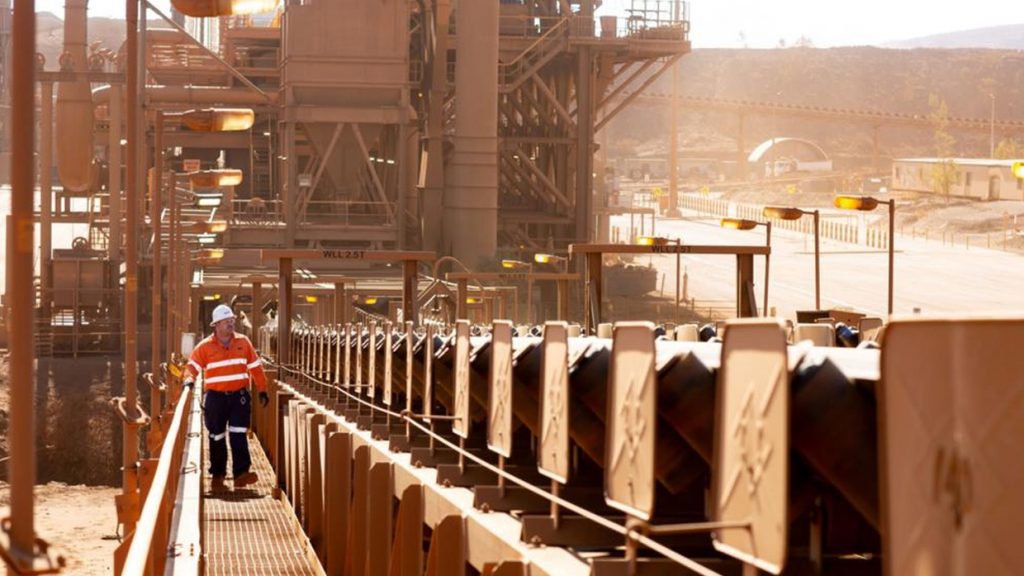
Article by Neale Prior, courtesy of The West Australian.

BHP and mining industry groups are preparing for a Pilbara showdown over new Federal laws aimed at making it easier to get into workplaces.
A team of union leaders, operating under the banner WA Mine Workers Alliance, is heading to the Pilbara this week to build support among BHP workers at its Area C and South Flank mine after a getting a toe back into the mining giant’s door.
While the alliance is painting BHP negotiating as a major breakthrough, industry players are selling it as a forced move after more than a decade of big miners keeping unions out of Pilbara operations.
The Minerals Council of Australia is claiming the unions are trying to capitalise on a reported loophole in the new Federal laws that allows unions to begin bargaining on an agreement within five years of its expiry.
Industry players say the union is trying to use a barely used agreement that expired in August 2019 to get them back into Area C and South Flank — and potentially put themselves at the heart of a new agreement.
BHP said in a statement last night that the Australian Workers’ Union, the Electrical Trades Union and the Australian Manufacturing Workers’ Union had “unilaterally initiated bargaining” under new Federal laws passed by Parliament last year.
BHP pointed to the removal of the requirement for unions to establish that workforce was in favour of their being involved in bargaining.
“BHP will comply with our obligations under the new section of the Fair Work Act,” a company representative said.
WA Senator and Shadow Workplace Relations Minister Michaelia Cash said the unions’ actions proved that the laws pushed by Prime Minister Anthony Albanese’s government were a “direct attack on Western Australia and our mining industry”.
“His government has enacted legislation that directly affects the well being of our State and the industry that is the engine room of the nation’s economy,” Senator Cash said.
Minerals Council chief executive Tania Constable said the power grab by unions would lower productivity on Australia’s most important industry.
“The mining sector has repeatedly warned the Albanese government of the economic dangers posed by its reckless overhaul of industrial relations laws,” Ms Constable told The Australian.
“We are now beginning to see the consequences.”
The WA Mine Workers Alliance involves the AWU and the Mining and Energy Union, which last December officially broke away from the now-troubled CFMMEU.
In a statement released by the alliance, MEU WA secretary Greg Busson said miners at BHP “should feel very proud of this breakthrough” and claimed BHP’s approach “contrasts sharply with Rio Tinto”.
“Iron ore miners at Rio Tinto tell me they simply wish to discuss their pay, conditions and rosters,” Mr Busson said. “But Rio seems determined to continue ignoring them.
Ms Constable said the union push into the Pilbara was of “grave concern” WA economy as it grappled with falling commodity prices and increased competition in critical mineral markets.